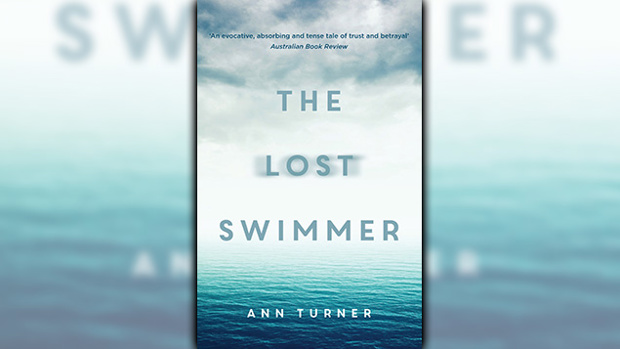Stephanie Jones: Book Review - The Lost Swimmer by Ann Turner
- Publish Date
- Thursday, 5 May 2016, 2:10PM

- Author
- By Stephanie Jones
On the surface, Ann Turner’s The Lost Swimmer is as lush and inviting as the Mediterranean Sea beside which an Australian archaeology professor and her husband endure one of the least enviable Italian sojourns since Ian McEwan’s The Comfort of Strangers. It all the makings of a muscular psychological thriller, with exotic Euro settings, devious academic rivals and murmurings of infidelity. But in the experience, it’s more of a soap opera in literary dress.
Universities can be among the most political of environs, and the professional plight of Rebecca Wilding is not altogether rare. Rebecca is in very good standing among her peers at the fictional Coastal University, having published numerous respected papers, supervised PhD students, and completed many other prerequisites to earn tenure. A shark-like Dean of Arts with inscrutable motivations puts paid to Rebecca’s sense of security, setting upon the professor and several of her close colleagues and delivering promises of budget-driven departmental cutbacks with evident relish.
Rebecca feels on similarly unstable ground at home. Her economist husband Stephen is also preoccupied by the prospect of lay-offs; it’s the economy, stupid. A more opaque aspect of the narrative is Rebecca’s hardening conviction that Stephen, with whom she has two grown children, is cheating on her, specifically with Priscilla. At a surprise birthday party Rebecca throws for him, she spies her husband and nemesis engaged in close conversation.
It is all too obvious for any practiced reader, who will recognize the simple trick of cartoonish villainy. A true femme fatale disguises her wiles until she identifies her mark. There is little to latch on to in Stephen, and not much more to the lightly sketched marriage. The more compelling question, about who is behind a high-stakes game of fraud involving illegal offshore bank accounts with tracks leading to Rebecca, has only one certain answer. It won’t be whomever ostensibly has the most to gain from taking her down.
As Rebecca’s life spins off its axis to a degree that even her liberty is at risk, Turner makes some odd choices. An overlong passage has Stephen and Rebecca fearing for their lives as they negotiate a precipitous coastal road. Rebecca recalls again and again the loss of her father, a fisherman who drowned during an outing with his daughter. These interludes, it would seem, are meant to raise the stakes, portend doom. “I was in my own Odyssey,” Rebecca reflects as she chases the phantom embezzler. But the pace is off: the rule of Chekhov’s gun is a classic of storytelling, but by the time the titular bather finally went astray, my emotional well had been parched by earlier strains and I felt none of the survivors’ distress.
Turner’s direct style makes for easy reading, but I wished for a firm hand to smooth out the lumpier writing, such as “a dead weight ran through [the] veins” of a troubled Rebecca, whose husband at one point clings to her “like a supportive limpet”. I remain at a loss as to what “a Machiavellian sandwich of a person” could be.
Despite a few potholes, The Lost Swimmer’s pages are easy to turn, and within them lies a melodrama promising escapism and enough mystery to occupy Monsieur Poirot. If there are contrivances, they keep the Italian adventure steaming along. Forget the convertibles, cobblestones and Champagne – this is no Roman holiday.
Take your Radio, Podcasts and Music with you

